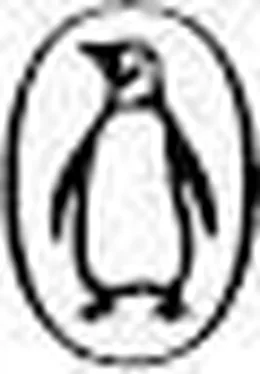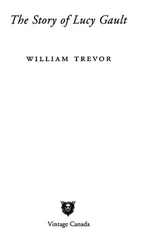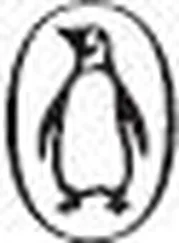Trevor, William - Children Of Dynmouth
Здесь есть возможность читать онлайн «Trevor, William - Children Of Dynmouth» весь текст электронной книги совершенно бесплатно (целиком полную версию без сокращений). В некоторых случаях можно слушать аудио, скачать через торрент в формате fb2 и присутствует краткое содержание. Год выпуска: 1976, Издательство: Penguin Publishing, Жанр: Старинная литература, на английском языке. Описание произведения, (предисловие) а так же отзывы посетителей доступны на портале библиотеки ЛибКат.
- Название:Children Of Dynmouth
- Автор:
- Издательство:Penguin Publishing
- Жанр:
- Год:1976
- ISBN:нет данных
- Рейтинг книги:4 / 5. Голосов: 1
-
Избранное:Добавить в избранное
- Отзывы:
-
Ваша оценка:
- 80
- 1
- 2
- 3
- 4
- 5
Children Of Dynmouth: краткое содержание, описание и аннотация
Предлагаем к чтению аннотацию, описание, краткое содержание или предисловие (зависит от того, что написал сам автор книги «Children Of Dynmouth»). Если вы не нашли необходимую информацию о книге — напишите в комментариях, мы постараемся отыскать её.
Children Of Dynmouth — читать онлайн бесплатно полную книгу (весь текст) целиком
Ниже представлен текст книги, разбитый по страницам. Система сохранения места последней прочитанной страницы, позволяет с удобством читать онлайн бесплатно книгу «Children Of Dynmouth», без необходимости каждый раз заново искать на чём Вы остановились. Поставьте закладку, и сможете в любой момент перейти на страницу, на которой закончили чтение.
Интервал:
Закладка:
PENGUIN DECADES
The Children of Dynmouth
William Trevor was born in 1928 in Mitchelstown, County Cork, and spent his childhood in provincial Ireland. He was educated at Trinity College, Dublin, before moving to England in 1953. He worked as a sculptor, as a teacher and, briefly, in advertising before becoming a full-time writer. His first novel, A Standard of Behaviour , was published in 1958. His subsequent novels have won many prizes, including The Old Boys (Hawthornden Prize), Fools of Fortune (Whitbread Fiction Award), The Silence in the Garden ( Yorkshire Post Book of the Year Award) and Felicia’s Journey (Whitbread Book of the Year Award), and he has also been shortlisted four times for the Booker Prize. His most recent novel is Love and Summer . Trevor is also a master short-story writer, acclaimed as ‘the greatest living writer’ of the form by John Banville. His Collected Stories were published in two volumes by Viking Penguin in 2009.
William Trevor was awarded the prestigious David Cohen British Literature Prize in 1999, and received an honorary knight-hood in 2002 in recognition of his services to literature. He has lived in Devon for many years.
The Children of Dynmouth , published in 1976, was Trevor’s eighth novel. It won the Heinemann Award for Fiction and was shortlisted for the Booker Prize.
Roy Foster is Carroll Professor of Irish History at the University of Oxford and a Fellow of Hertford College. His books include Modern Ireland 1600–1972 , The Irish Story: Telling Tales and Making It Up in Ireland , the two-volume authorized biography of W. B. Yeats ( The Apprentice Mage, 1865–1914 and The Arch-Poet, 1915–1939 ) and most recently Luck and the Irish: A Brief History of Change 1970–2000 .
The Children of Dynmouth
WILLIAM TREVOR

PENGUIN BOOKS
PENGUIN BOOKS
Published by the Penguin Group
Penguin Books Ltd, 80 Strand, London WC2R 0RL, England
Penguin Group (USA), Inc., 375 Hudson Street, New York, New York 10014, USA
Penguin Group (Canada), 90 Eglinton Avenue East, Suite 700, Toronto, Ontario,
Canada M4P 2Y3 (a division of Pearson Penguin Canada Inc.)
Penguin Ireland, 25 St Stephen’s Green, Dublin 2, Ireland (a division of Penguin Books Ltd)
Penguin Group (Australia), 250 Camberwell Road, Camberwell, Victoria 3124, Australia
(a division of Pearson Australia Group Pty Ltd)
Penguin Books India Pvt Ltd, 11 Community Centre, Panchsheel Park, New Delhi – 110 017, India
Penguin Group (NZ), 67 Apollo Drive, Rosedale, North Shore 0632, New Zealand
(a division of Pearson New Zealand Ltd)
Penguin Books (South Africa) (Pty) Ltd, 24 Sturdee Avenue, Rosebank, Johannesburg 2196, South Africa
Penguin Books Ltd, Registered Offices: 80 Strand, London WC2R 0RL, England
www.penguin.com
First published by The Bodley Head 1976
Published in Penguin Books 1979
Reissued with a new introduction in Penguin Books 2010
Copyright © William Trevor, 1976
Introduction copyright © Roy Foster, 2010
The moral right of the author and of the introducer has been asserted
All rights reserved
Without limiting the rights under copyright reserved above, no part of this publication may be reproduced, stored in or introduced into a retrieval system, or transmitted, in any form or by any means (electronic, mechanical, photocopying, recording or otherwise), without the prior written permission of both the copyright owner and the above publisher of this book
ISBN: 978-0-14-196486-7
Contents
Introduction
Chapter 1
Chapter 2
Chapter 3
Chapter 4
Chapter 5
Chapter 6
Chapter 7
Chapter 8
Chapter 9
Chapter 10
Chapter 11
Chapter 12
Introduction
The Children of Dynmouth , first published in 1976, has something in common with William Trevor’s breakthrough 1964 novel, The Old Boys : the child-molesting Basil Jaraby from the earlier book, with his dyed hair and budgerigars, might well have retired to Dynmouth after a spell in jail. But by the mid-1970s, Trevor’s great short-story collections ( The Day We Got Drunk on Cake , The Ballroom of Romance , Angels at the Ritz ) had established him as supreme master of that form, and he was simultaneously crafting novels where eccentric interior worlds develop into visions of surreal and tragic intensity, as in Miss Gomez and the Brethren . A generation before Patrick McCabe and Irvine Welch, The Children of Dynmouth reveals Trevor at his most ruthless, macabre and grand guignol .
Timothy Gedge, the demonic fifteen-year-old who dominates the novel, smiles as he tells of the ‘terrible things’ he has seen in the underworld of outwardly respectable Dynmouth.
Still smiling, he spoke again. He’d witnessed all sorts, he said: the dead buried, kids from the primary school lifting rubbers out of W. H. Smith’s, Plant on the job with his mother, his legs as white as mutton-fat. He’d witnessed Rose-Ann and Len up to tricks on the hearth-rug, and others up to tricks in the wood behind the Youth Centre, kids of all ages, nine to thirteen, take your pick. He’d seen the Robson woman from the Post Office buying fish and chips in Phyl’s Phries with Slocombe from the Fine Fare off-licence, and Pym, the solicitor, being sick into the sea after a Rotary dinner in the Queen Victoria Hotel. He’d seen the Dynmouth Hards beating up the Pakistani from the steam laundry in a bus-shelter, and spraying
Blacks Out
on the back wall of the Essoldo. He’d seen them terrorizing Nurse Hackett, the midwife, swerving their motor-cycles in front of her blue Mini when she was trying to go about her duties at night-time. There was wife-swapping every Saturday night at parties on the new estate, Leaflands it was called, out on the London road. He’d looked in a window once and seen a man in Lace Street taking out his glass eye. He’d seen Slocombe and the Robson woman up on the golf-course. In Dynmouth and its neighbourhood he’d witnessed terrible things, he said.
Gedge’s creator can make us smile too, and laugh out loud, but unwillingly. The slow burn of Gedge’s intense fantasy, his obsession with becoming a celebrity stand-up comedian through re-creating the Brides in the Bath Murders for the Spot the Talent competition at the Dynmouth Fête, creates an inexorably mounting tension, as Gedge manipulates and blackmails his way in pursuit of his ill-omened stage props. In the process, Dynmouth is laid as bare as Dylan Thomas’s Llareggub. But the secrets and lies of an out-of-season English seaside town reveal an inner landscape at once more desolate and less sentimental than the little town lying under Milk Wood.
In his power and range, as in much else, Trevor resembles another displaced Irish writer from North County Cork, Elizabeth Bowen. Kate, another child of Dynmouth whose dreams will be wrecked by Gedge’s revelations, possesses all the fierceness and vulnerability of one of Bowen’s little girls; and Trevor matches Bowen’s mastery of elliptical dialogue, mixing formal evasions with slapdash slang. The grotesque larkiness of Gedge’s diction, as where he refers to Commander Abigail ‘homo-ing all over the joint’, lodges horribly in the mind of the reader as well as those of Gedge’s listeners. Trevor’s people, like Bowen’s, talk in tongues, and imagine futures that will not happen, in hallucinatory detail. Like Bowen, too, Trevor sees English middle-class life in south-coast watering places with the eye of an astonished outsider. There is an exoticism to their rituals and observances, jarred by garish splashes of colour. Though Trevor deals with quintessentially English mores, there is an Irish sensibility at work. The names of Dynmouth people proclaim a Saxon landscape (Gedge, Dass, Plant, Pyke, Droppy, Abigail, Blakey). But Timothy Gedge’s unholy wish for fame and notoriety is implanted by a fly-by-night student teacher, who lasts half a term in the local comprehensive, and he is called Brehon O’Hennessy.
Читать дальшеИнтервал:
Закладка:
Похожие книги на «Children Of Dynmouth»
Представляем Вашему вниманию похожие книги на «Children Of Dynmouth» списком для выбора. Мы отобрали схожую по названию и смыслу литературу в надежде предоставить читателям больше вариантов отыскать новые, интересные, ещё непрочитанные произведения.
Обсуждение, отзывы о книге «Children Of Dynmouth» и просто собственные мнения читателей. Оставьте ваши комментарии, напишите, что Вы думаете о произведении, его смысле или главных героях. Укажите что конкретно понравилось, а что нет, и почему Вы так считаете.










